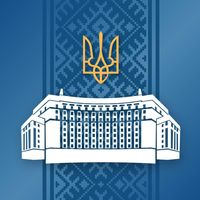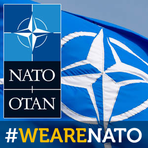Allies Stand Firm: A Unified Front for Ukraine Amid Global Turmoil
October 20, 2024, 3:37 am

Location: United Kingdom, Wales, Newport, Wales
Employees: 1001-5000
Founded date: 1954

Location: United States, District of Columbia, Washington
Employees: 10001+
Founded date: 2000
In a world teetering on the edge of chaos, leaders from the United States, Germany, France, and Britain gathered in Berlin. Their mission? To reaffirm unwavering support for Ukraine. The meeting, held on October 18, 2024, was a clarion call against Russia's relentless aggression. It was a moment steeped in urgency, as Ukraine braces for a harsh winter of war.
President Joe Biden, flanked by German Chancellor Olaf Scholz, French President Emmanuel Macron, and British Prime Minister Keir Starmer, made it clear: the allies will not waver. They condemned Russia's actions and pledged to bolster Ukraine's defenses. The stakes are high. As Ukraine faces significant battlefield losses, the specter of a potential shift in U.S. leadership looms large. A return of Donald Trump to the White House could spell a drastic reduction in military support for Kyiv.
Biden's visit was not just a formality. It was a farewell of sorts, a last stand before the U.S. elections. The leaders discussed plans for additional security, economic, and humanitarian assistance for Ukraine. They understand the gravity of the situation. Winter is coming, and with it, the challenges of sustaining a war effort.
The meeting also highlighted a troubling development: North Korea's involvement in the conflict. Reports surfaced of 1,500 North Korean special forces training in eastern Russia. This alliance between Moscow and Pyongyang raises alarms. It signals a dangerous escalation, one that could further complicate the already volatile situation in Ukraine.
Meanwhile, President Volodymyr Zelenskyy is pushing for a "victory plan." He seeks immediate NATO membership, but the allies remain hesitant. They fear that such a move could draw NATO directly into the conflict, transforming a regional war into a global catastrophe. The leaders reiterated their commitment to support Ukraine, but they tread carefully, balancing assistance with the need to avoid direct confrontation with Russia.
The backdrop of these discussions is the ongoing conflict in the Middle East. Biden and his allies are hopeful that recent developments, including the death of Hamas leader Yahya Sinwar, could pave the way for a ceasefire in Gaza. The humanitarian crisis there is dire, with thousands of lives lost. The leaders expressed a unified desire to bring hostages home and ensure aid reaches civilians. The stakes are high, and the need for peace is urgent.
Biden's visit was also a moment of reflection on transatlantic ties. Just a few years ago, the relationship between the U.S. and Germany was strained. Now, it has been revitalized. Biden's leadership has restored hope in the alliance, a beacon of democracy in turbulent times. The German president honored Biden with the Grand Cross of the Order of Merit, a testament to his commitment to NATO and Ukraine.
However, the U.S. elections cast a long shadow over these discussions. The possibility of a Trump presidency raises questions about the future of U.S. support for Ukraine. Trump has been critical of NATO and has questioned the level of military aid to Ukraine. Allies are understandably anxious. They fear that a shift in U.S. policy could embolden Russia and undermine Ukraine's efforts.
As the leaders concluded their meeting, the message was clear: support for Ukraine will continue. But the path ahead is fraught with challenges. The specter of North Korean troops, the complexities of NATO membership, and the ongoing crisis in the Middle East all loom large. The world watches closely as these leaders navigate a treacherous landscape.
In the face of adversity, unity is paramount. The allies must remain steadfast. The stakes are not just about Ukraine; they are about the future of democracy and stability in Europe. As winter approaches, the resolve of these leaders will be tested. They must act decisively, for the cost of inaction is too great.
The meeting in Berlin was more than a diplomatic gathering. It was a declaration of intent. A promise to stand firm against tyranny. A commitment to support a nation fighting for its sovereignty. The world is watching, and the allies must not falter. The fight for Ukraine is a fight for the principles of freedom and justice. In this battle, every decision counts. Every moment matters. The allies must be ready to face whatever comes next.
President Joe Biden, flanked by German Chancellor Olaf Scholz, French President Emmanuel Macron, and British Prime Minister Keir Starmer, made it clear: the allies will not waver. They condemned Russia's actions and pledged to bolster Ukraine's defenses. The stakes are high. As Ukraine faces significant battlefield losses, the specter of a potential shift in U.S. leadership looms large. A return of Donald Trump to the White House could spell a drastic reduction in military support for Kyiv.
Biden's visit was not just a formality. It was a farewell of sorts, a last stand before the U.S. elections. The leaders discussed plans for additional security, economic, and humanitarian assistance for Ukraine. They understand the gravity of the situation. Winter is coming, and with it, the challenges of sustaining a war effort.
The meeting also highlighted a troubling development: North Korea's involvement in the conflict. Reports surfaced of 1,500 North Korean special forces training in eastern Russia. This alliance between Moscow and Pyongyang raises alarms. It signals a dangerous escalation, one that could further complicate the already volatile situation in Ukraine.
Meanwhile, President Volodymyr Zelenskyy is pushing for a "victory plan." He seeks immediate NATO membership, but the allies remain hesitant. They fear that such a move could draw NATO directly into the conflict, transforming a regional war into a global catastrophe. The leaders reiterated their commitment to support Ukraine, but they tread carefully, balancing assistance with the need to avoid direct confrontation with Russia.
The backdrop of these discussions is the ongoing conflict in the Middle East. Biden and his allies are hopeful that recent developments, including the death of Hamas leader Yahya Sinwar, could pave the way for a ceasefire in Gaza. The humanitarian crisis there is dire, with thousands of lives lost. The leaders expressed a unified desire to bring hostages home and ensure aid reaches civilians. The stakes are high, and the need for peace is urgent.
Biden's visit was also a moment of reflection on transatlantic ties. Just a few years ago, the relationship between the U.S. and Germany was strained. Now, it has been revitalized. Biden's leadership has restored hope in the alliance, a beacon of democracy in turbulent times. The German president honored Biden with the Grand Cross of the Order of Merit, a testament to his commitment to NATO and Ukraine.
However, the U.S. elections cast a long shadow over these discussions. The possibility of a Trump presidency raises questions about the future of U.S. support for Ukraine. Trump has been critical of NATO and has questioned the level of military aid to Ukraine. Allies are understandably anxious. They fear that a shift in U.S. policy could embolden Russia and undermine Ukraine's efforts.
As the leaders concluded their meeting, the message was clear: support for Ukraine will continue. But the path ahead is fraught with challenges. The specter of North Korean troops, the complexities of NATO membership, and the ongoing crisis in the Middle East all loom large. The world watches closely as these leaders navigate a treacherous landscape.
In the face of adversity, unity is paramount. The allies must remain steadfast. The stakes are not just about Ukraine; they are about the future of democracy and stability in Europe. As winter approaches, the resolve of these leaders will be tested. They must act decisively, for the cost of inaction is too great.
The meeting in Berlin was more than a diplomatic gathering. It was a declaration of intent. A promise to stand firm against tyranny. A commitment to support a nation fighting for its sovereignty. The world is watching, and the allies must not falter. The fight for Ukraine is a fight for the principles of freedom and justice. In this battle, every decision counts. Every moment matters. The allies must be ready to face whatever comes next.

